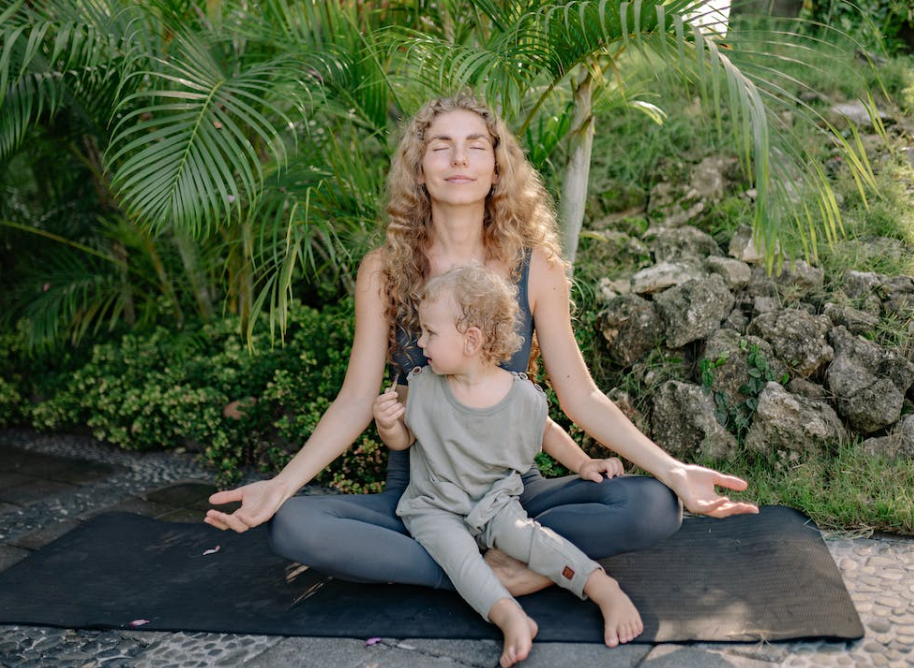Why Meditation Is Bad?
Learn why meditation is bad and when meditation can make things worse.

Selfpause Affirmation App
Download the app to get 1,000’s of affirmation meditations and everything you need to write, record and listen to your own.
If you are undergoing a mental health issue, meditation may worsen the situation. It can trigger intense emotions that you have been repressing. If this is the case, it is best to avoid meditation until you have addressed the problem. Instead, seek help from a psychiatrist or therapist. Meditation can also make you more aware of repressed feelings, and it is always best to talk about these with a trusted person.
Meditating to control your emotions

The use of meditation to control your emotions is not necessarily bad and may even be beneficial. This practice is said to re-wire the brain and increase the “me-center” region, which plays an important role in personality expression, decision-making, self-reflection, and social interaction. This part of the brain also controls emotions, and it can amplify depressive and anxious thoughts.
During meditation, you learn to recognize and appreciate your emotions. This helps you understand why you’re feeling a particular way. In a real situation, recognizing your emotions is a crucial step in reducing your anxiety and frustration. In addition to lowering your stress level, meditation can increase your quality of sleep.
Emotion control is an essential skill that can lead to a happier life. It is important to remember that emotions are not meant to destroy us; instead, they are meant to highlight the problems we’re having. By learning to recognize your emotions and then letting them go, you can resolve the issues that they highlight.
If you want to learn how to control your emotions, you can practice mindfulness meditation. Mindfulness meditation is a method that focuses on being aware of the present moment. During this time, you can also practice acceptance and letting go of your emotions.
Developing a sense of self

Developing a sense of self through meditation can be harmful. However, some practitioners claim that the process has increased their awareness of the self and helped them develop a greater sense of their identity. In fact, some people have reported that they gained a sense of self that included other people and objects in their awareness.
In addition to the benefits of meditation, there are also some drawbacks. Research indicates that this practice can lead to re-experiences of past trauma and trouble sleeping. In one study, about 6% of participants reported experiencing negative or disruptive side effects of the meditation program. However, it is not recommended to use this research as proof that the practice is bad.
Many people use meditation to improve their relationships, enhance their health, and develop their sense of self. Practicing meditation can also improve one’s emotional state and spiritual development. However, if practiced for a long time, meditators may find that they have a new understanding of themselves and their lives.
Exposing yourself to negative emotions
Exposing yourself to negative emotions while meditating is a bad idea for a few reasons. For one, it puts you in a vulnerable position. It may also make you want to hide the negative emotions you are feeling, particularly when it comes to a relationship. Secondly, you can feel too much sadness if you are constantly exposed to negative emotions. Fortunately, you can change your habits to minimize the negative effects of exposure.
Developing a sense of control over your mind

Unwanted thoughts can cause a lot of distress and frustration. But it’s possible to learn how to control these thoughts and eventually get rid of them. The key is to change your mindset, and this can be difficult for some people. Here are 10 ways to help you achieve this goal.
One technique to help you control your thoughts is to focus on awareness. By focusing on what’s happening in the present moment, you’re able to see what’s happening and how you’re reacting to it. You also learn that your thoughts aren’t necessarily helpful. You can regain control over your thoughts and your actions. Meditation is an excellent way to achieve this.
Developing a sense of control over your thought process is important for developing emotional intelligence. Without a conscious awareness of your mind, you can’t determine what emotions are affecting you and how to respond to them. When you’re living on auto-pilot, you’re likely to find yourself living with stress, self-doubt, and worries. This can result in chronic stress, which leads to physical and mental problems.
It’s a form of exposure therapy

One common misconception about meditation is that it’s bad for your mental health. However, this is largely false. This form of exposure therapy may actually reduce your sensitivity to anxiety triggers. It also teaches your brain to break negative associations with certain things or situations. As you continue to engage in this type of therapy, you will gradually become less sensitive to fear reactions.
The method of exposure therapy is known to work well with people who suffer from social anxiety. It aims to teach patients to trust themselves around other people, and replace avoidance behavior with self-confidence and good communication skills. It’s also a proven way to reduce stress, which is an essential part of mental health.
Exposure therapy involves exposing a patient to the thing or situation they are afraid of. Exposure therapy has two main methods: in vivo exposure and in vitro exposure. The former involves real-life exposure, while the latter uses virtual reality to simulate a feared situation. Systematic desensitization is also commonly used in conjunction with ET. During this method, patients do a combination of exercises, such as deep breathing, to reduce physical sensations tied to anxiety.
Another approach is called graduated exposure therapy, which involves gradual exposure to the feared object or situation. This treatment is often used for people with anxiety or obsessive-compulsive disorder. The patient works with a behavioral therapist in a one-on-one session. This therapy can take anywhere from four to 15 sessions, but results can be seen within a few weeks.
It’s not a form of mindfulness

Mindfulness is the practice of being fully aware of what is happening right now. This practice is sometimes confused with meditation, but there are differences between the two. The practice involves slowing down, paying attention to what is happening, suspending judgment, and engaging fully in the present moment. However, this practice is not a substitute for meditation.
It is an informal practice of being aware of what is happening in the present moment. It can be applied to any waking situation. For example, a person can focus on the full experience of doing a task such as a chore like washing dishes. They can notice the temperature of the water, the texture of the soap, and other aspects of the task at hand. By practicing mindfulness, people can also improve their attention span and avoid multitasking.
While the two practices can be used together, they are not the same. While mindfulness is a practice that helps one become aware of the present moment, meditation is more about reaching a state of mind that transcends time.
Our Top FAQ's
In some cases, meditation can have negative effects on an individual’s mental health. For example, if a person has unresolved traumatic experiences or underlying psychological issues, meditation can sometimes exacerbate these conditions and lead to distress. In other cases, people may experience difficulties or challenges during meditation, such as intense emotions or physical discomfort, which can be distressing. However, for most people, meditation is considered to be a safe and beneficial practice that can improve mental health and well-being.
As mentioned above, meditation can sometimes cause harm or distress to a person, particularly if they have underlying psychological issues or unresolved traumatic experiences. In these cases, it’s important to consult with a qualified healthcare professional before starting a meditation practice. Additionally, some people may experience difficulties or challenges during meditation, such as intense emotions or physical discomfort, which can be distressing. In these cases, it’s important to seek guidance and support from a qualified instructor or therapist to ensure that meditation is practiced safely and effectively.
In some cases, meditation can exacerbate existing psychological conditions or issues. For example, if a person has unresolved traumatic experiences or underlying psychological issues, meditation can sometimes trigger these conditions and lead to distress. In these cases, it’s important to consult with a qualified healthcare professional before starting a meditation practice. Additionally, some people may experience difficulties or challenges during meditation, such as intense emotions or physical discomfort, which can be distressing. In these cases, it’s important to seek guidance and support from a qualified instructor or therapist to ensure that meditation is practiced safely and effectively.
It is true that some people may not be suited for meditation and may experience negative effects. For example, people with certain psychological conditions or unresolved traumatic experiences may find that meditation exacerbates these conditions and leads to distress. In these cases, it’s important to consult with a qualified healthcare professional before starting a meditation practice. Additionally, some people may simply find that meditation is not a good fit for them, or that they struggle to practice it consistently, which can lead to negative effects. In these cases, it’s important to try different meditation techniques or approaches to find what works best for you.
There are some potential dangers associated with practicing meditation, such as over-reliance on the technique. For example, some people may become overly dependent on meditation as a way of coping with stress or other difficult emotions, and may find that they are unable to handle challenges or difficulties without the support of their meditation practice. In these cases, it’s important to seek guidance and support from a qualified instructor or therapist to ensure that meditation is practiced safely and effectively. Additionally, it’s important to maintain a balanced and healthy lifestyle, including regular physical activity and a nutritious diet, to support overall well-being.
